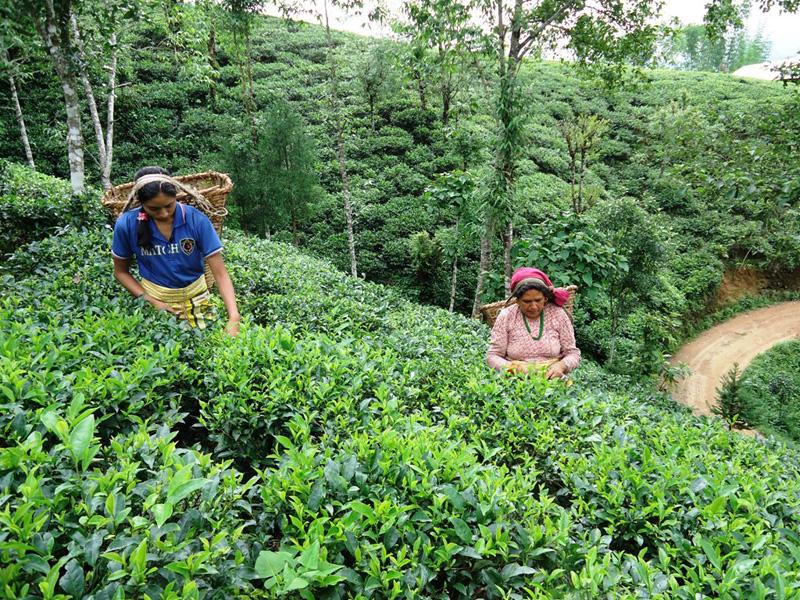Historic tea estate of Nepal shrinking
Ilam, January 2
‘Ilame Sahar, Chiyabari Ramro, Tyahi Paryo Ghar Hamro’. It is a line of a song which popularised the relation between Ilam and tea garden. The song not only celebrates tea estates but also love. Ilam is known for its swathes of lush tea gardens that add to its natural beauty.
Everyone is curious about the beauty of tea estates in Ilam. But the tea estate run by the government is so poor that it contradicts the song now. Although other tea estates are not best in the district, the state of the government-run tea estate at district headquarters Ilam is saddening.
One is greeted with depleting shrubs of tea with no trimming, weeding nor new cultivation.
The first tea estate of the country carrying a significant history is diminishing in value. It was established in 1863 after Rana Prime Minister Junga Bahadur Rana brought tea saplings from China and planted them here to make the garden. The first tea factory in the country is also here.
A local historian and senior citizen said the then badahakim (governor) of Ilam Gajraj Singh Thapa planted the tea for the first time in Nepal. The species of tea cultivated here is regarded as rare.
In the year 2000, the government had given authority to manage tea gardens to Triveni Sanghai Group on lease with its 65 per cent share. Tea gardens in Ilam, Kanyam, Soktim, Chilimkot of Ilam and Barne, Baradashi and Tokala of Jhapa were given to the group.
The old tea plants are also the reason behind the reduced number of tea garden.
In 1865, tea cultivation had begun at Shoktim, the southern belt of Ilam. Later, green leaves were processed in the factory set up in 1983. The historical factory is in ruins and the garden is declining.
With the local levels in place, the people’s representatives here demanded that the federal government transfer them authority to manage tea gardens. However, the government has not heeded.
The first municipal assembly of Ilam Municipality had decided to bring the Ilam tea estate under its ownership, while Mai Municipality demanded authority over Soktim and Chilimkot tea estates.
Mayor of Ilam Municipality Mahesh Basnet said, “Although the Ilam Tea Estate and Industry bears historic importance, the industry is in a sorry state. So, we want the authority to manage this estate.”
Similarly, Suryodaya Municipality Mayor Ran Bahadur Rai and Mayor of Mai Municipality Dipak Thebe also stressed the need to bring the estates under the jurisdiction of local governments to save its history and value.
Feature Image: File






